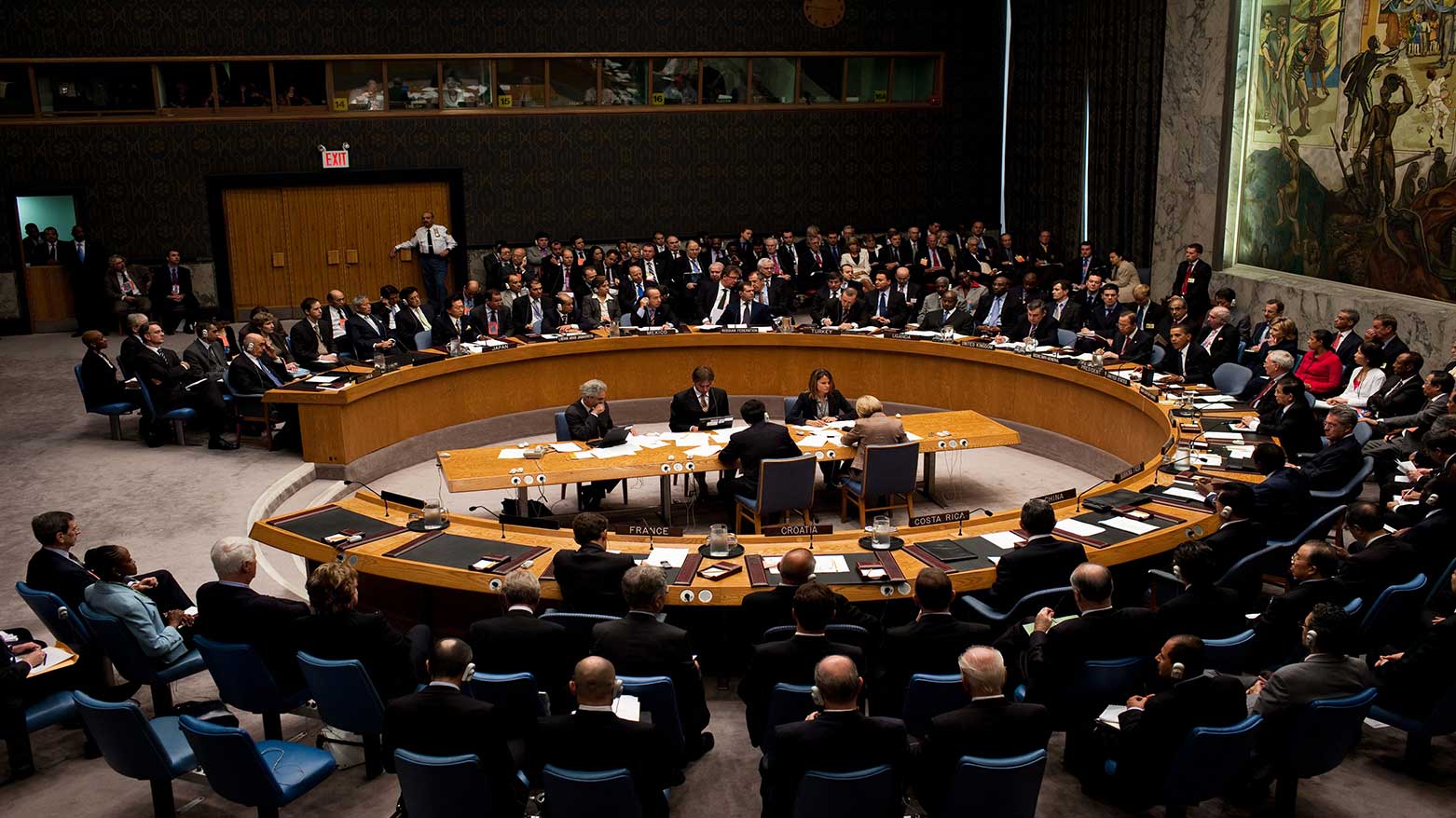U.N. Backs Trump’s Gaza Governance Plan, Authorizing International Stabilization Force
Security Council approval gives Washington a mandate to shape Gaza’s post-war future under President Trump’s oversight.

ERBIL (Kurdistan24) — The Trump administration on Monday secured sweeping international backing for its plan to stabilize and govern Gaza, as the U.N. Security Council overwhelmingly approved a U.S.-drafted resolution authorizing an international force and endorsing a transitional authority led by President Donald Trump.
The move marks the most consequential global endorsement yet for Washington’s efforts to steer the war-torn enclave toward a political roadmap after two years of destruction and humanitarian crisis.
The resolution—adopted with 13 votes in favor and abstentions from Russia and China—empowers an international stabilization force to secure Gaza, oversee border control, and supervise the demilitarization of armed groups.
It also endorses Trump’s proposed “Board of Peace,” a transitional authority whose mandate, along with that of the international force, will remain in effect through the end of 2027. Arab and Muslim-majority states had insisted that U.N. authorization was a prerequisite for contributing troops.
Trump hailed the approval as “one of the biggest in the History of the United Nations,” framing the vote as a historic step toward global peace. The resolution also formally endorses the U.S. president’s 20-point ceasefire plan, which builds on the fragile truce he helped broker with regional allies.
A key breakthrough in the negotiations came after two weeks of deliberations, when Arab states and the Palestinian delegation pressed Washington to strengthen language regarding Palestinian self-determination.
The final draft opens the door—without offering a timeline—to an eventual independent Palestinian state once Gaza’s reconstruction advances and the Palestinian Authority undergoes reform. The resolution states that these developments could establish “conditions… for a credible pathway to Palestinian self-determination and statehood.”
U.S. Ambassador Mike Waltz said the measure “represents another significant step towards a stable Gaza that will be able to prosper and an environment that will allow Israel to live in security.” However, Hamas rejected the resolution, claiming it does not meet “the Palestinian people’s political and humanitarian demands.”
Israeli Prime Minister Benjamin Netanyahu, who continues to oppose Palestinian statehood, reiterated his objections even as Israel’s U.N. envoy Danny Danon thanked Trump “for leading peace to the Middle East.” Algeria’s ambassador, speaking for Arab states on the council, welcomed Trump’s role in securing the ceasefire but insisted that “justice for the Palestinian people” remains the foundation of any lasting peace.
Support from regional powers—including Qatar, Egypt, the UAE, Saudi Arabia, Indonesia, Pakistan, Jordan, and Turkey—was pivotal in pushing the resolution across the finish line. The eight nations issued a joint call urging its “swift adoption,” signaling readiness to participate in the stabilization mission.
Russia, while noting the strong regional backing, abstained over what it described as the resolution’s weak commitment to Palestinian statehood and the limited role assigned to the Security Council.
The approval raises hopes that Gaza’s ceasefire can hold following the devastating war triggered by Hamas’s October 7, 2023 attack on southern Israel, which killed around 1,200 people.
Under the plan, the stabilization force will be empowered to use “all necessary measures” to carry out its mandate, including the disarmament of non-state armed groups—an element Hamas condemned as compromising the force’s neutrality.
The troops will also help secure border zones alongside a vetted Palestinian police force and coordinate humanitarian assistance with Egypt, Israel, and international agencies.
As the international force establishes control, Israeli troops are set to withdraw from Gaza in phases based on agreed demilitarization benchmarks. These benchmarks must be approved by the stabilization force, the U.S., Israeli forces, and the guarantors of the ceasefire.
Trump said members of the Board of Peace will be announced in the coming weeks, promising “many more exciting announcements” as Washington begins implementing what is now the U.N.’s endorsed blueprint for Gaza’s next chapter.